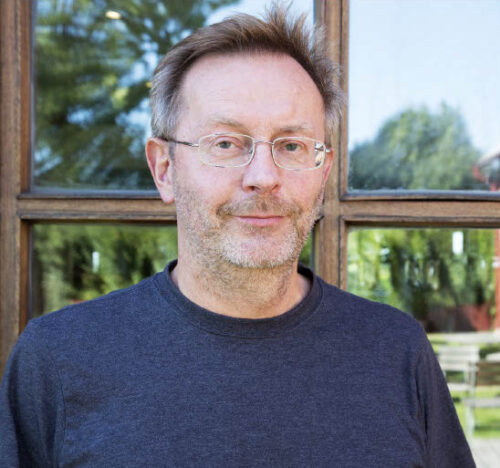Ronny Berndtsson is a Professor of Water Resources Engineering and the Deputy Director of the Centre for Advanced Middle Eastern Studies at Lund University. His research focuses on water as a key driver of collaboration and sustainable development. He currently coordinates the EU H2023 project FarmWise—Future Agricultural Resource Management and Water Innovations for a Sustainable Europe. Want to learn more? Read the interview below!
What is currently at the top of your research agenda?
Presently much of my time is devoted to coordinating two large EU collaborations; FarmWise (Future Agricultural Resource Management and Water Innovations for a Sustainable Europe) and SmartWater4Future (Coupled urban-rural water infrastructure management under hydroclimatic extremes with decision support system). In FarmWise we are trying to help policy and decision makers to make informed or better choices when it comes to water quality management in agriculture. We are testing various kinds of agricultural innovations such as smart biosensors and DNA-based indicators to improve the accuracy of water quality modelling to in turn set better water quality thresholds and generate lacking data. We also, want to see how agricultural productivity can be improved by designing a decision support system to provide farmers with important short- and long-term management options, which hopefully will allow them to choose options that suit their needs best. In SmartWater4Future we are also designing a decision support system to better handle climatic extremes such as droughts and floods. We aim to develop new and improved tools for risk assessment, integrated modelling of flooding from urban drainage systems coupled with river catchment and recipients (rivers, lakes, wetlands and sea) under these extremes, supported by historical data and on-site monitoring of near real-time data especially for Nordic and arctic areas. By applying the Sustainable Life Cycle Assessment, we will try to provide a holistic decision support toolkit to help water utilities manage the water and wastewater systems for safe distribution, collection and treatment of water and wastewater from inlet to recipient regarding the water quantity and quality under the extreme stressors such as intense precipitation and huge temperature variations.
Tell us about your latest publication.
One of my latest publications is a collaboration with Iranian researchers on how to save energy by using automatic surface water distribution in irrigated agriculture. We looked at a very arid area in Iran that annually pumps more than 82 million m3 of groundwater from 15,000 legal and illegal tube wells, leading to severely decreased groundwater levels and increased energy consumption of 234 million kWh per year. Interestingly, we could show that by automatizing the surface water distribution system and including surface water simulation, up to about 55% of electrical energy could be saved during mild-moderate water scarcity. In turn, this would make irrigation more efficient and lead to less groundwater table lowering.
What led you to your particular field of research?
I grew up on a small northwestern Scanian farm. From early on I could understand the importance of water and how it was used to make crops and animals grow and keep them healthy. After civil engineering studies, I came to write a PhD on urban-rural water problems in Tunisia. In turn, that led to involvement in several EU projects in Tunisia and the Middle East. Eventually, I became involved in a new centre at Lund University, the Centre for Advanced Middle Eastern Studies. Presently, I am a deputy director here and deputy scientific coordinator for the strategic research area: Middle East in the Contemporary World.
What are the implications of your research for society?
I hope that my research can help farmers and decision-makers to develop more efficient cropping systems and at the same time keep the environment clean and enjoyable. In line with this, there are great need to apply new research results in, e.g., practical farming and crop production. Unfortunately, more and more of our shared water is becoming affected by nutrients and various pollutants. Only by a joint understanding of causes and effects, can all of us jointly do something about these problems. It is not an easy task it is something that all of us can help with.
Finally, let´s say you have unlimited research funds; where would your research be five years from now?
I have always been interested in how things work. Climate and biogeophysical processes are obviously chaotic and small variations in the short term can lead to extremes in the long term. We know this from the modelling of simplified systems. The observational data that we can access are, however, not yet that complete to understand these processes. So, if I had unlimited access to funds, I think it would be interesting to try to map how climate-energy-water-material-biophysical systems interact and modify depending on small changes in input and output. Clearly, it would be almost impossible to get a complete picture of this in the long term but anyway, something you could dream of if you had unlimited funds!

Thank you for a very interesting interview, Ronny! We wish you the best of luck and success in your future path!
(Main photo: Charlotte Carlberg)

